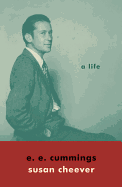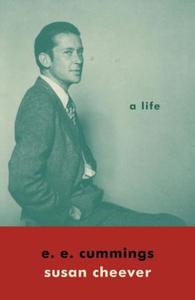

Cummings was born into wealth and an idyllic and privileged family--the large family spent glorious summers at their beautiful New Hampshire farm--and Cummings took full advantage of it. They lived close to Harvard, where his father, a strict minister, was a professor and he himself would eventually enroll, with T.S. Eliot and John Dos Passos as classmates. At college, Cummings became a booze- and woman-loving, rebellious, angry, brilliant young man.
In his last year, Cummings took an intensive class in poetic forms and formalism. Ironically, it gave him the freedom to experiment with form, punctuation and spelling, freeing him to "string words and forms together in an electrifying and entirely original way." As class valedictorian, he gave a speech on the "New Art." After graduating, Cummings moved to Greenwich Village and soaked in the vibrant neighborhood he was to live in for the rest of his life. In 1917, he and several friends signed up for a private ambulance corps in France; the autobiographical novel The Enormous Room deals with his war experiences.
He dedicated the rest of his life to his wordly-wild poetry; only in his final years, however, did he really make any money from it. Cheever doesn't shirk from examining his darker side--bouts with anti-Semitism, his reactionary conservatism, egotism and his life-long abuse of alcohol and pills--but always keeps his profound influence on poetry and young poets in mind. She generously and lusciously quotes from his exuberant poetry throughout the book, and takes the time to discuss in depth a number of pieces. E.E. Cummings: A Life isn't the first biography of the poet, but it may be the most charming and heartfelt--a thoroughly enjoyable appreciation. --Tom Lavoie
Discover: An ideal, unpretentious and welcoming biography for those interested in learning more about a great poet too often remembered for his rejection of capital letters than his verse.

